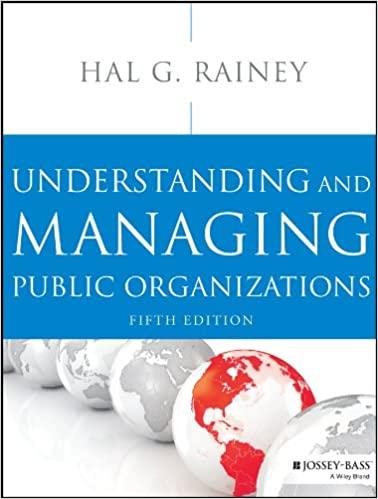Question
PART 1 Ms Mackay worked in the product dispatch unit of a manufacturing company unit and had an IEA with her employer. She has made
PART 1
Ms Mackay worked in the product dispatch unit of a manufacturing company unit and had an IEA with her employer. She has made two verbal complaints about unacceptable bullying by three fellow employees to her immediate manager, Ms Norton. Her complaint related to other employees and their behaviour towards Ms Mackay, including criticism of her personality, her work and overall demeanour. No steps were taken by Ms Norton. Then, after further disagreements with the three fellow employees, Ms Mackay lodged a detailed complaint in a four-page letter. A week later, Ms Norton reminded staff they should communicate with each other in a respectful way.
Ms Mackay was invited to attend a meeting to discuss her complaint with a senior manager and with Ms Norton, to be held in the following week. At that meeting, she outlined her concerns about bullying by three fellow employees. The managers did not discuss the specific points raised by Ms Mackay and she was not informed about obtaining support from an Employee Assistance Programme that was available to her and was not informed about an inhouse mediation process that was also available. These entitlements were policies of the organisation. Instead, they discussed the need for employees to focus on working together as a team. The managers had planned to interview the three employees that Ms Mackay had complained about but did not disclose this to her.
On the same day, the two managers met with the three employees who produced written complaints about Ms Mackay. The managers discussed with the employees how to avoid inflammatory situations. The managers recorded that the employees were willing to attend some form of mediation to restore a harmonious work environment. Ms Mackay was not informed about this. The senior manager then wrote to Ms Mackay. He summarised the complaints brought against her but did not address the issue of bullying by her fellow employees and how this would be addressed. She was asked to respond, which she provided in a long email. In it she denied the allegations which had been made against her. The senior manager replied to Ms Mackays email stating he would respond by the end of the week.
Ms Mackay then took two weeks leave for a medical procedure for her eyesight, having told her employer about this in advance. Her manager was aware of ongoing medical issues with Ms Mackays eyesight and had been given written advice from an eye specialist that workplace stress should be avoided.
No communication was sent to her during this time and immediately following her two weeks leave, she gave notice of her resignation to the senior manager, to take effect two weeks later, stating there had been no response as to how her concerns could be addressed. She stated that she did not want to return to under the conditions she had complained about and again referred to specialist medical advice that any kind of distress would impact on her recovery from the medical procedure.
A Day after sending in her resignation letter, she reconsidered her options as she had been told by another employee that inhouse mediation was an option. She again wrote to the senior manager asking that her resignation now be put on hold in the hope that the conflict could be resolved by mediation. The mediation process was outlined to her by the manager in a return email and she agreed to attend mediation. She asked for details of the mediation to be sent to her at the managers earliest convenience but received no response.
The senior manager then discussed the dispute with the companys HR advisors. He then telephoned Ms Mackay and in a brief call he explained to her that she could not put her resignation on hold, and that she either needed to withdraw it or keep it in place. He said that mediation was not an option as he was still investigating the three complaints by the fellow employees regarding Ms Mackay.
Ms Mackay explained she wanted these issues resolved. The senior managers response that he needed time to deal with the complaints against her.
This led Ms Mackay to confirm her resignation, stating that the failure to deal with her complaint and the effects on her health gave her no other option.
The senior manager was aware of the following policies of the company, but failed to follow these:
- encourage the reporting of unacceptable behaviour.
- carry out a timely investigation and resolution of complaints.
- treat all complaints in a serious, sensitive, fair, timely and confidential manner.
- during a complaint investigation, the need for timeliness and the need to keep the parties informed of progress.
- The Employee Assistance Programme and options for inhouse mediation.
She has now taken a personal grievance against the company, has claimed constructive dismissal, and is seeking compensation for hurt and humiliation.
Required: 1 Outline the legal elements of the following:
- Personal grievance
- Constructive dismissal
- Compensation for hurt and humiliation
2 Can Ms Mackay successfully claim for the above three actions? Give reasons.
Step by Step Solution
There are 3 Steps involved in it
Step: 1

Get Instant Access to Expert-Tailored Solutions
See step-by-step solutions with expert insights and AI powered tools for academic success
Step: 2

Step: 3

Ace Your Homework with AI
Get the answers you need in no time with our AI-driven, step-by-step assistance
Get Started


